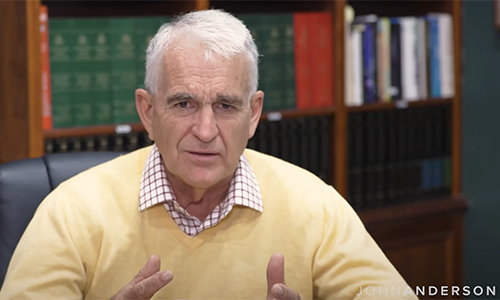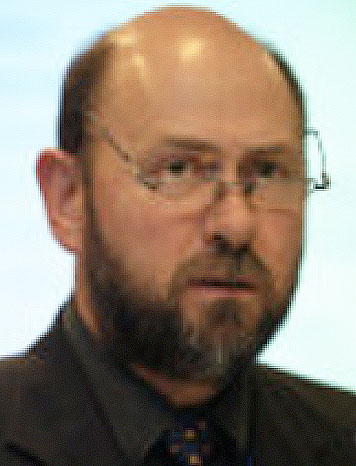
by PAUL COLLITS – THERE is no rational basis to net-zero, even if you do believe in climate change fantasy.
This is accepted by anyone remotely in tune with reality.
Recently, two excellent Australians did an interview on the madness of net-zero and the crisis of energy policy.
- We park the obvious, and go along with the ridiculous and the immoral.
- Inconvenient truths no longer have a place in policymaking, nor in the media.
- Three centuries of post-Enlightenment rationality has delivered us climate emergency politics and lockdowns.
Those two Australians were former Deputy Prime Minister John Anderson and Chris Uhlmann, a first-rate journalist formerly of the ABC.
You don’t often see those two expressions – “first rate journalist” and “ABC” – in the one sentence. In fact, it isn’t really a stretch to suggest that Uhlmann is probably the only decent journalist the ABC has employed in three decades.
PEERLESS
Anderson is peerless for his fundamental decency and in his commitment to making the world a saner place, through respectful conversations about ideas.
I am far from convinced that his hopeful efforts will be rewarded. For we live in an age where even vaguely rational and respectful debates are pretty much verboten in the public square, where instead there exists something more akin to the Roman Colosseum.
(Respectful debates are probably a male, white, heteronormative, colonialist invention and affectation.)
Anderson and Uhlmann were lamenting the absence of rationality in Australian energy policy and, in particular, the cost to individuals and the economy of the UniParty’s commitment to net-zero fossil fuel gas emissions, by a year not very far from now.
Uhlmann went over familiar ground – that Australia produces around one per cent of global emissions, and that 60 per cent of the world’s economy is controlled by nations with no intention of ever committing to net-zero.
So, it is pointless. (One might also mention that the contribution of humans to atmospheric carbon dioxide is much tinier than even the one per cent figure. Which only scratches the surface of the many fabrications and the anti-science core of the climate cult.)
None of this is ever brought into the mainstream debates on the subject. Inconvenient truths no longer have a place in policymaking, nor in media reportage of it.
Sticking to a narrative is considered more important than good policy outcomes. Too many are invested in the bullshit. In the pay of the powerful who set the narratives and demand absolute obeisance.
The policy of total reliance on the renewables scam has no basis in rationality. And there is no point whatsoever in trying to win an argument with a supporter of net-zero.
This is because climate zealotry is a cult, and cults are not based on rational thinking. Look at Jim Jones. He was responsible for the very first dose of Kool-Aid.
Pretty much all his 900 cultists in Jonestown topped themselves just because he told them to. Killed themselves. And their children. It really happened. In our lifetimes (1978). Australia is doing something very similar with energy.
This is well known to Anderson and Uhlmann. But not to the lunatic Bowen, or even (at the time of writing) to the Liberal Party. And not to a large minority, perhaps even a majority, of Australians who seem to be accepting of the suicide pact for which they have signed up. (Is not knowing what you have done a sign of human rationality?)
CULTS
Other cults abound and drive policy in the public square. Just think of the COVID cult.
What these cults have in common is an unerring and totally unjustified belief in the capacity of man to solve (non-existent) problems with human action.
The climate and COVID extremists also are fully signed up to another cult. A bigger cult. This is the belief in the inevitability of progress.
One major contemporary philosopher has referred to “the unthinking beliefs of thinking people”. He wrote these words in 2002, so he didn’t have either climate change or the COVID plandemic in his sights.
But he did have in his sights the disciples of what he calls “liberal humanism” and the poverty of belief in human progress.
The philosopher’s name is John Gray and his book is called Straw Dogs. Not to be confused with the 1970s Sam Peckinpah film starring Dustin Hoffman and Susan George.
Gray says up front: “Today liberal humanism has the perverse power that was once possessed by revealed religion. Humanists like to think they have a rational view of the world; but their core belief in progress is a superstition, further from the truth about the human animal than any of the world’s religions.
The ruling elites of our day are fully signed up to the false idea of inevitable human progress. Hence their favourite term of self-identification, “progressives”, and its implied opposite, “reactionary” or similar.
Their whole world view is based on the assumption that they, and they alone, have the keys to the kingdom of perfect life on earth. That man is perfectible – by man.
Capable of discarding his former racism and homophobia, for example. Capable of moral improvement in the image of the elites’ values.
This is all built on philosophical quicksand.
But there is no progress, apart from internal plumbing and other mod-cons. There has been no human progress. We don’t need John Gray to tell us this, but he does so succinctly and eloquently, and so, valuably.
If you were trying to prove Gray’s thesis, you would simply have to look at climate policy for half a minute.
Three hundred years of post-Enlightenment rationality has delivered us climate emergency politics, lockdowns, kill-jabs and maskism. As well as the threat (again) of nuclear annihilation over a tin-pot squabble in eastern Europe.
SELF-DESTRUCTION
Not to mention suicidal net-zero policies. And the national self-destruction associated with mass immigration and open borders. And the willingness of whole populations to trade their freedom for ephemeral pleasures and addictions gifted by their smart phones. And the willingness of parents to give over their tiny children to the State’s child care so that their family could have two wage slaves and not just one. And the willingness of citizens to stand idly by as their democracies are trashed – while they continue to pay their exorbitant taxes to fund expenditures about which they do not remotely agree.
Not much progress there.
We inhabit an age of routine cognitive dissonance and easily accepted idiotic false binaries.
Simultaneous beliefs in contradictory propositions does not suggest rationality or human progress. We park the obvious, and go along with the ridiculous and the immoral. Because either we are eternally lazy or because we just want to go along to get along.
It is an age where Blind Freddie should be seeing things that we (modern man) mostly don’t.
We embrace ludicrous cults that the ancient Roman pagans never would. Our lack of progress, even as we proclaim rationality oozing from every modern human pore, is palpable.
Why did Gray choose the term straw dogs as his book title? Here is one explanation:
The phrase “straw dogs” originates in ancient China, referring to ceremonial objects made of straw used in religious rites.
These straw dogs were a substitute for sacrificing real dogs and were discarded after the ceremony. The idea of straw dogs is also used in a more figurative sense, often referring to something valued or revered during a specific time or event, but then discarded or forgotten afterward.
His choice of title suggests our proclivity for discarding things once thought to be valued, but now, not so much.
A chorus to an age of throwaway virtue and rationality, perhaps.
Alasdair MacIntyre and Christopher Lasch would probably get the reference. And maybe John Anderson and Chris Uhlmann would, too.PC












